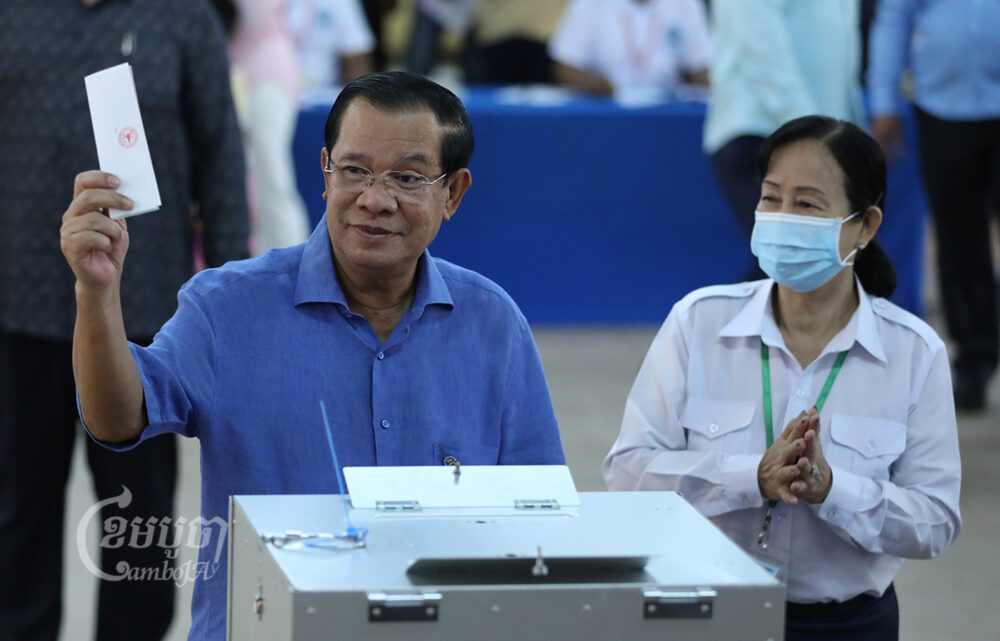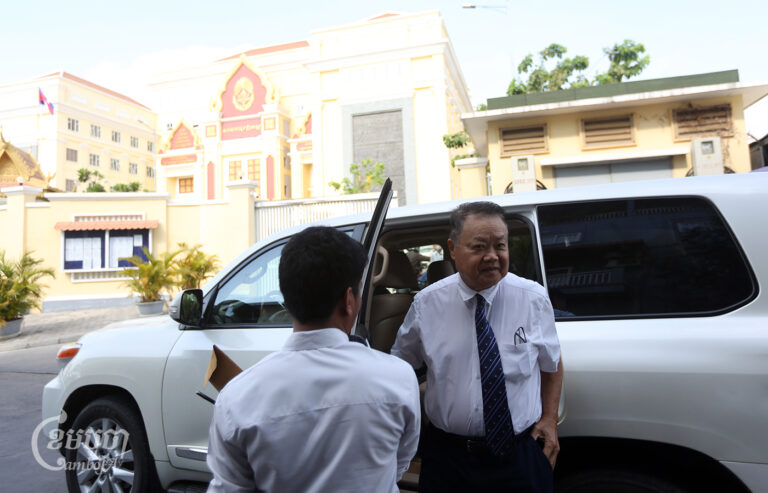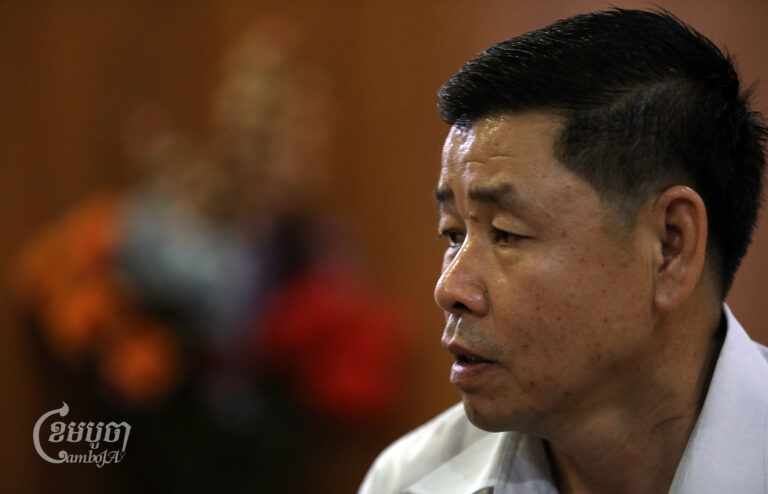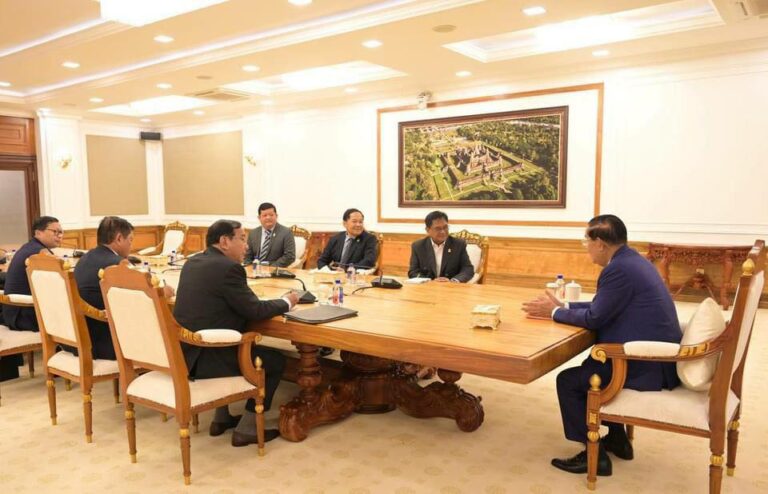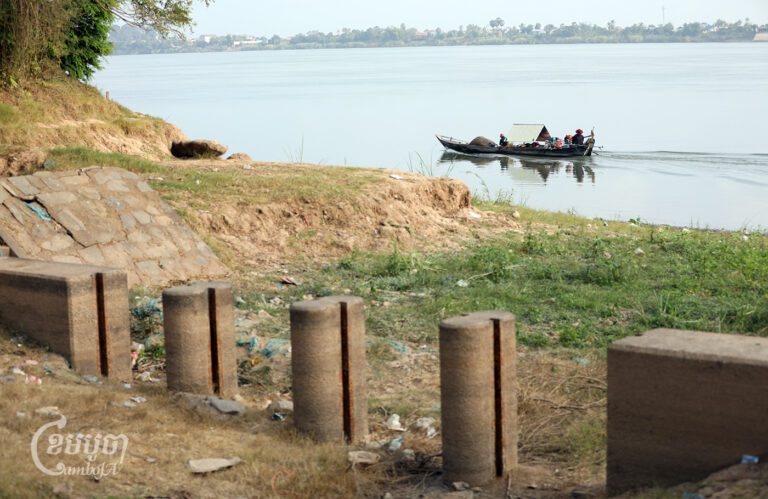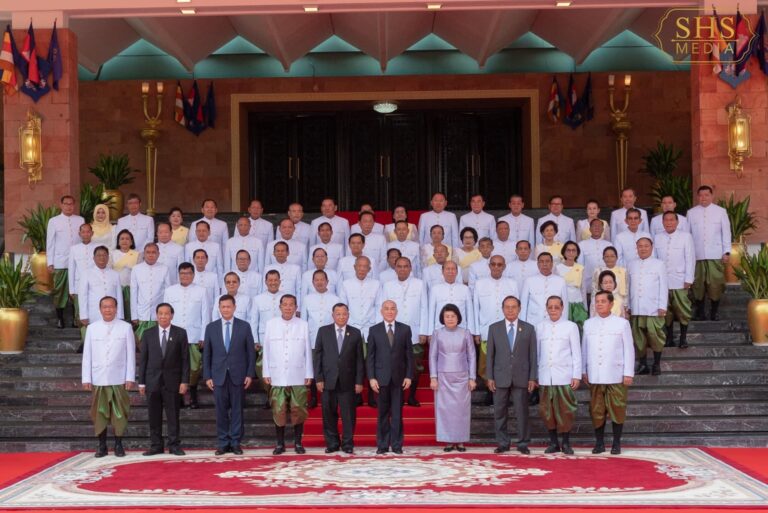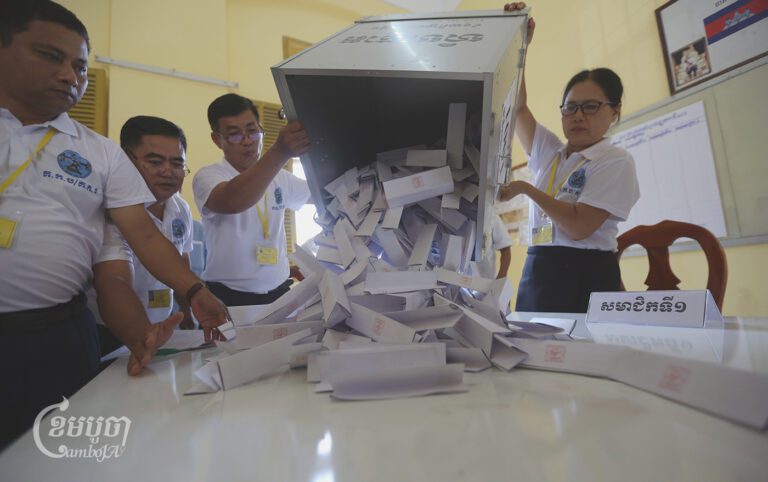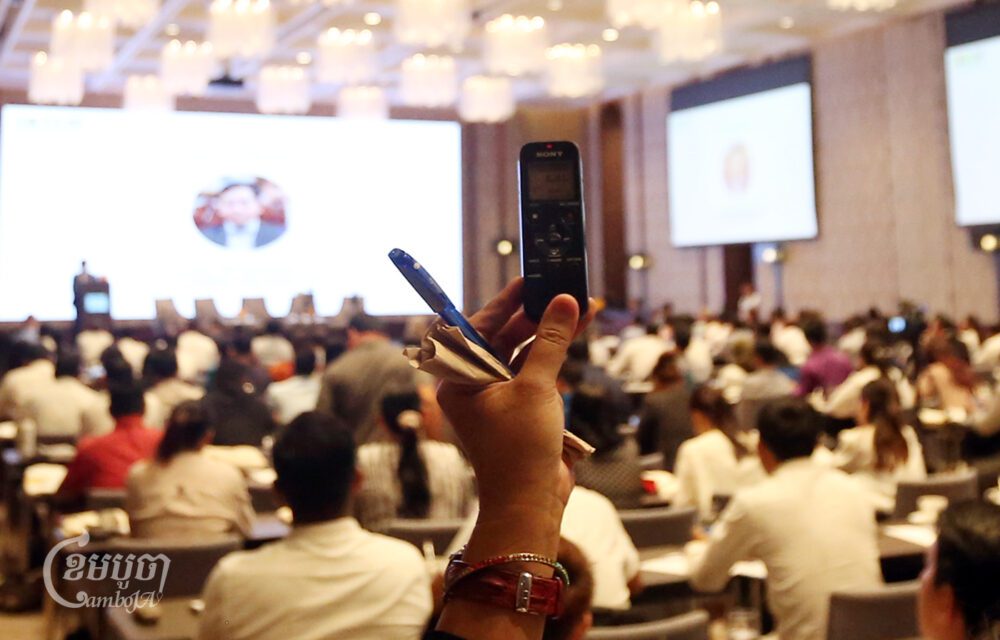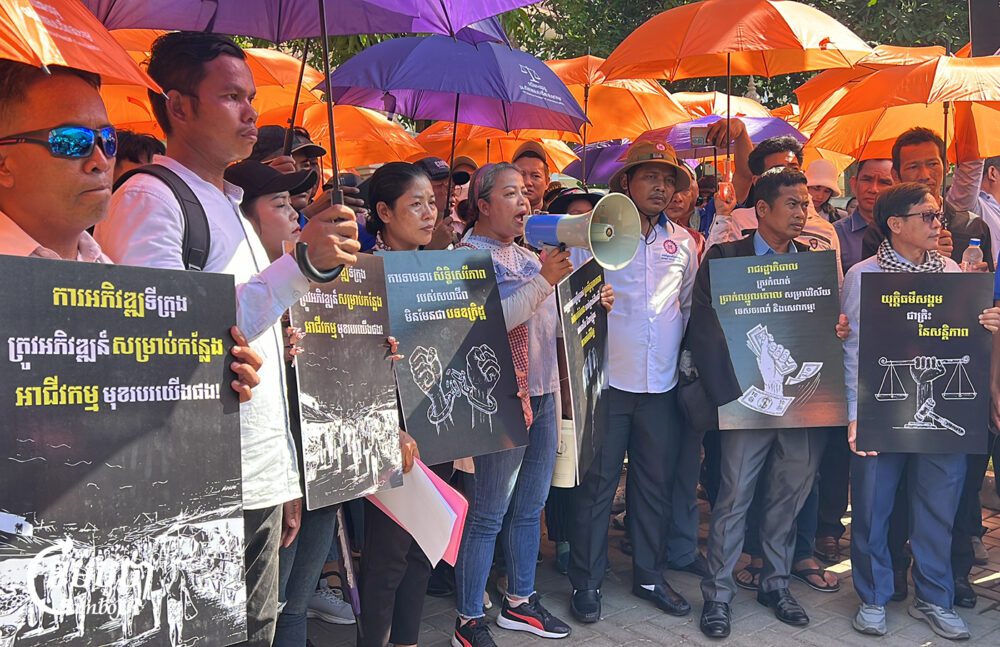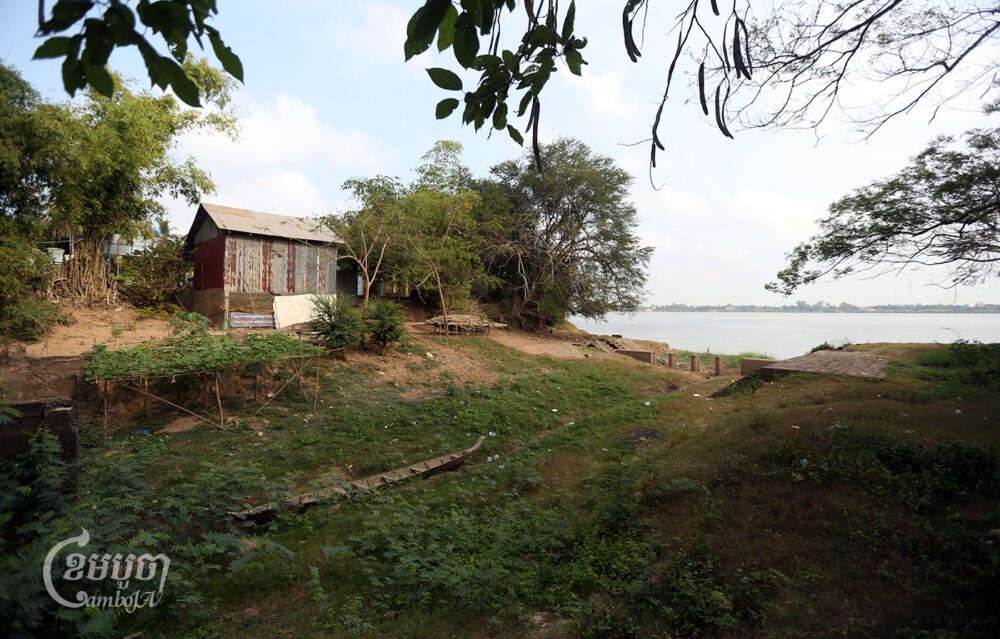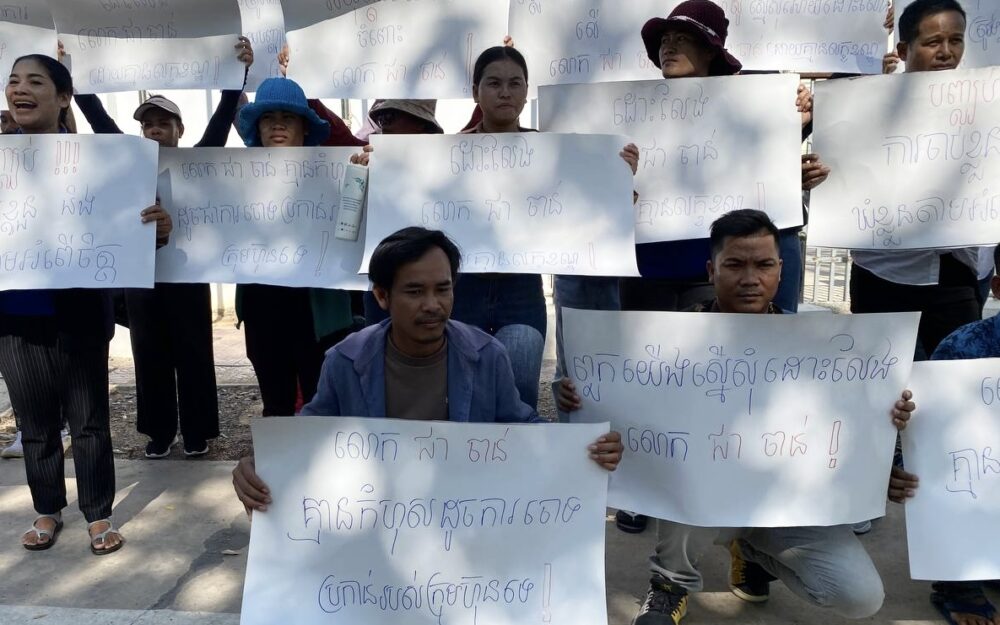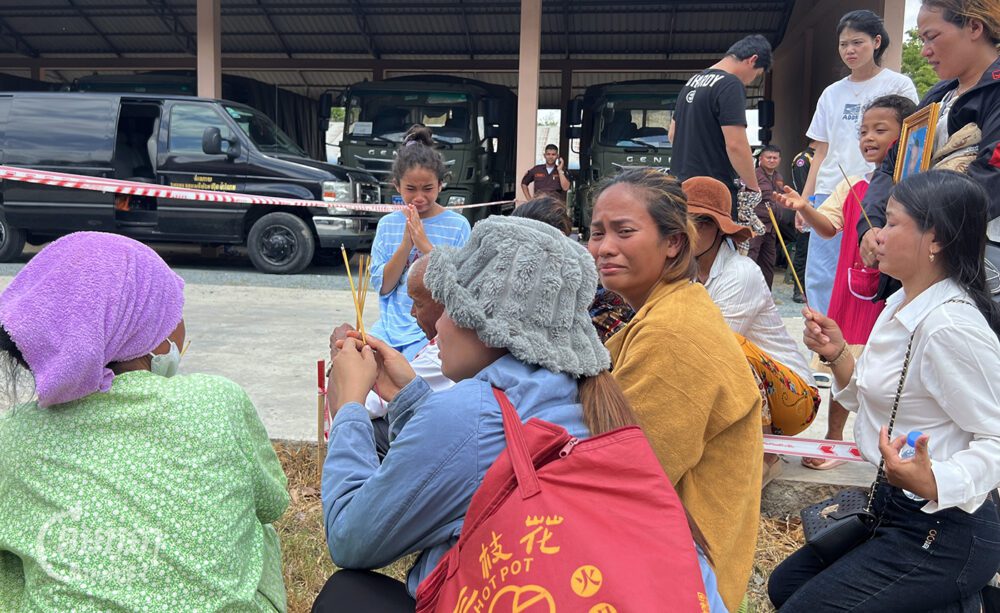Prime Minister Hun Sen proposed an amendment to election law on Monday evening that would prevent candidates from running for election if they have not voted in previous elections. He said the amendment must be approved in the near future, before the upcoming national election on July 23.
“If a person does not vote without a reasonable exception according to the law, they will be disqualified from being a candidate in the election,” Hun Sen said in audio posted to his Facebook. “We definitely need to do this [amendment] before starting the electoral campaign.”
Hun Sen said he had already met with Interior Minister Sar Kheng and Justice Minister Keuth Rith to discuss enacting the amendment. The change in law would apply to candidates at all levels of government, including commune council members, provincial council members, senators and members of the National Assembly, he said.
“People from political parties, if they don’t vote, for example, in the upcoming election on July 23, 2023, if they don’t vote at that time, they can’t be a candidate in the next election,” he said. “We have to reform the accountability for a person who wishes to be a candidate in the election.”
In the audio message, he stated that those running for election need to be “good citizens” in a democratic nation by implementing their right to vote. Citizens will still have the right to vote in the future regardless of their past voting record, but the amendment would affect the ability of candidates to run in future elections, he said.
Sam Kuntheamy, executive director at election monitor NICFEC, said that he thinks the government is trying to get as many people to vote in response to Facebook campaigns by Candlelight supporters and party members encouraging citizens to boycott the national election. The party was recently disqualified from the election.
“He [Hun Sen] wants a lot of people to vote because he knows that certain candidates will not go to vote, so the amendment is aimed at getting people to vote,” Kuntheamy said.
He added that if 70 or 80% of people do not participate in the voting process, it will not be representative of the majority of the population.
National Election Committee spokesperson Hang Puthea said that “regarding amending the election law, the NEC is the institution that will implement the law, so when the law is enacted, the NEC will follow it.”
He said that in elections dating back to 1947 in Cambodia, there has never been less than 50% voter turnout. According to Puthea, in 1993 there was 89% turnout, in 2018 82% turnout, and in the 2022 commune elections there was 80% turnout.
However, “no part of election law stipulates a certain percentage of voter turnout for the election to be considered valid,” Puthea said “Whatever the percentage is, the election can be considered valid.”
Justice Ministry spokesperson Chin Malin declined to comment. He referred further questions to the Interior Ministry’s Secretary of State Sak Setha. Setha could not be reached for comment.
In the prime minister’s recorded message, he said he wanted to use a similar law in Thailand as a model for the change in Cambodia.
“It is not an uncommon issue there in our neighboring country, the Kingdom of Thailand, for one political party to lose many seats because they [candidates] did not fulfill their obligation to vote in the past election,” he said.
Section 35 of the Thai Organic Act on The Election of Members of the House of Representatives does prohibit citizens who failed to vote, without a justifiable reason, from running for or holding political office for a period of two years.
Napon Jatusripitak, visiting research fellow at ISEAS-Yusof Ishak Institute, told CamboJA via Whatsapp that, while Thailand has had “its fair share” of parliamentary bannings, they have typically been for reasons other than candidates not voting in previous elections.
“Some candidates have been disqualified from running for office due to this restriction, but this is only in small numbers. Most parties and candidates are aware of the restriction and the seriousness with which the Election Commission of Thailand treats this issue,” Jatusripitak stated. “Therefore, they usually take steps to ensure that it does not become a problem in the first place.”
Candlelight spokesperson Kimsour Phearith said that the proposed amendment to election law shows that the government is afraid people will not turn out to vote in the July election.
“I don’t know about it and let other people analyze it, but the purpose [of the amendment] might be to have many people turn out to vote,” he said.
He said he believed the proposal was targeted at the Candlelight party. But his biggest concern is that the Candlelight party cannot participate in the general elections, after around two million voters supported the party in the 2022 local commune council election.


